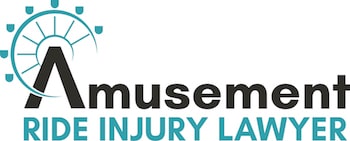Amusement Park and Water Park Waivers
A liability waiver is a document that someone signs that acknowledges their understanding of the risks of an activity that they are going to participate in. Some activities like bungee jumping, skydiving, or trampoline parks have people sign a piece of paper when they arrive. Many amusement parks and carnivals simply have the limitations of liability on the back of the ticket. Therefore, you may be agreeing to the risks of the park or carnival without even realizing it. Buying the ticket is essentially in place of you signing a physical waiver.
Signing a Waiver
Many people who get injured at an amusement park or carnival believe that because of the liability waiver, they cannot sue a park for sustaining injuries. Liability waivers are often broad and try to cover just about everything so that the park cannot be responsible for someone getting injured. However, there are some limits to what they can actually waive liability for. Also, each and every amusement ride injury entails a different story, set of circumstances, and injuries from the next, so you should not just assume that the park cannot be held responsible.
Proving Liability
One example of how a park might not be liable for an injury is if an older man with heart problems knowingly goes on a roller coaster that has a warning sign for medical conditions. If this man rides that roller coaster and has a heart attack on the ride, the park will most likely not be held responsible for that injury occurring.
But, if a child goes on a ride and there is a mechanical error that causes them to fall, it would be difficult for the park to try and claim that they were not responsible. Similarly, if a ride operator is intoxicated while operating a ride and stops the ride short and causes an accident, it would be difficult for the park to claim that they are not responsible.
Even when a liability waiver is signed, it does not mean that an injured rider cannot file a claim against the park. This is because, when you sign a very broad liability waiver and acknowledge the risks, you are not acknowledging the risks of an intoxicated ride operator or a mechanical failure.
Fair Liability Waivers
Fairs and festivals that pop out around the state during the summer may become a bit more complicated as far as liability. Unlike amusement parks, many of the rides and booths and different activities are owned by independent groups. This situation can make proving liability very complicated, but it can be done with an attorney who knows the situation and injuries of your case.
Getting Help
If you or your loved one has been injured by an amusement ride and you are worried that you signed a waiver or think you did, do not worry. Once you have received medical attention, there are some steps that you can take. If possible, take pictures of the scene at which the injury took place and find anyone that may have witnessed the accident. Take down any witnesses’ contact information and the name of the ride operator of people in charge of the ride. Also, report the accident to whoever is in charge of the park like a manager or owner. Next, report the accident to the authorities if you feel comfortable doing so. Lastly, contact our office and speak with an attorney as soon as possible to go over what happened and the injuries that you sustained. An attorney will work with you to come up with a plan and strategies to move forward with a claim and proving liability.

